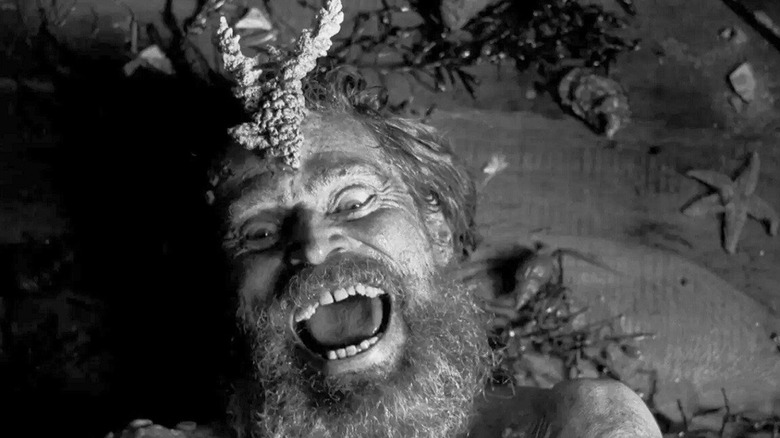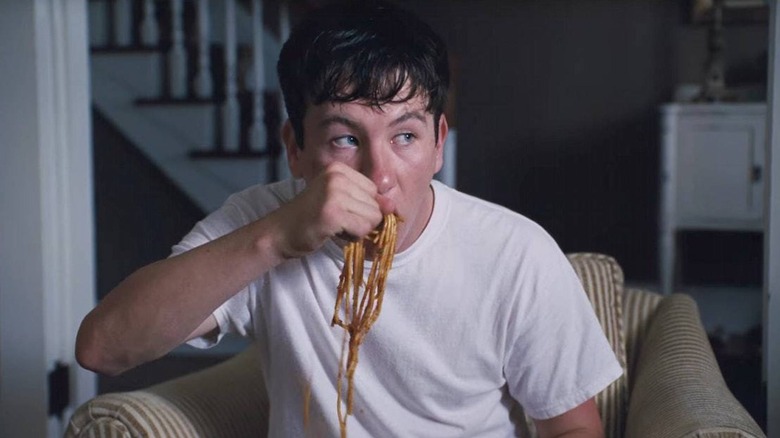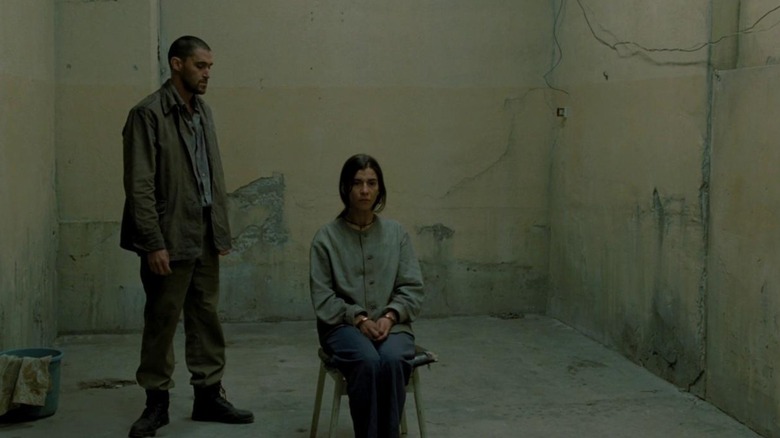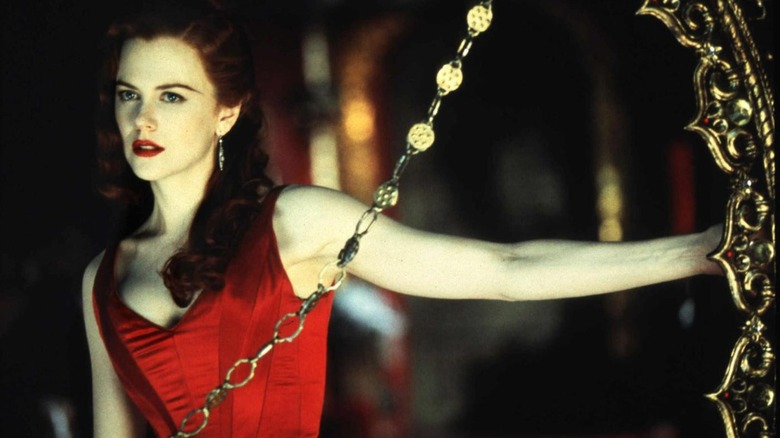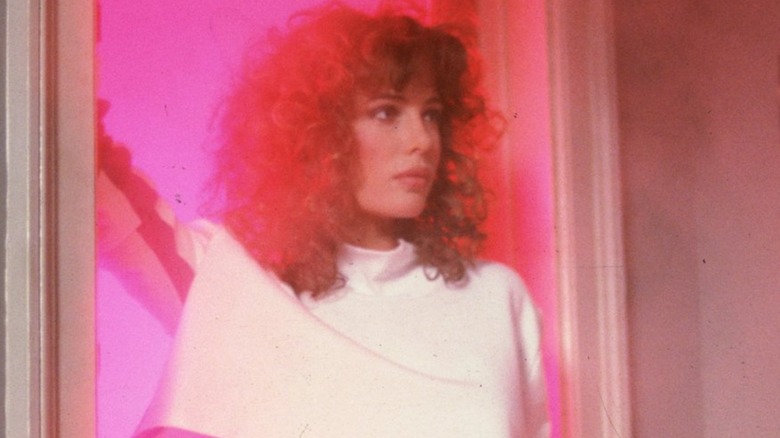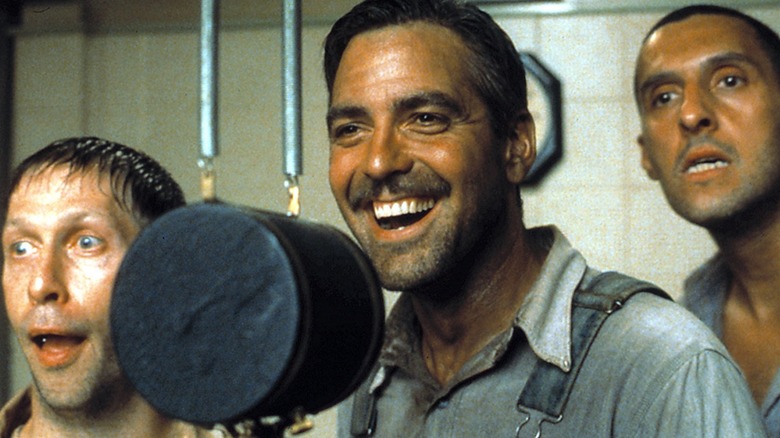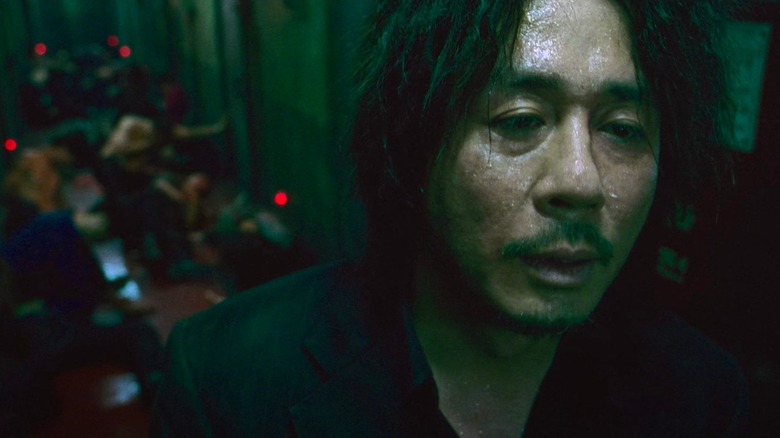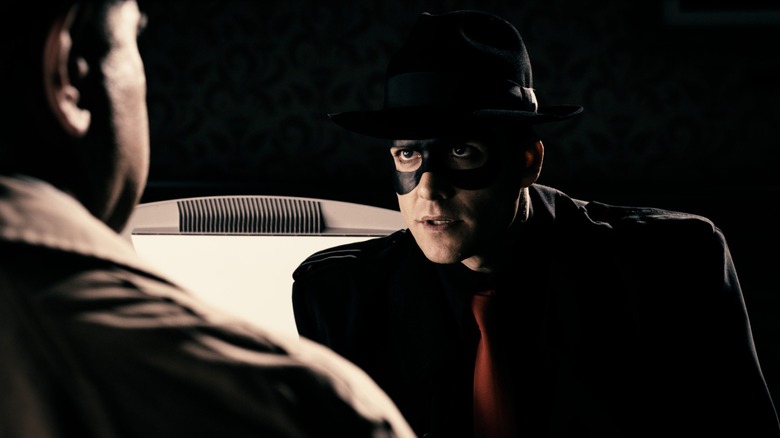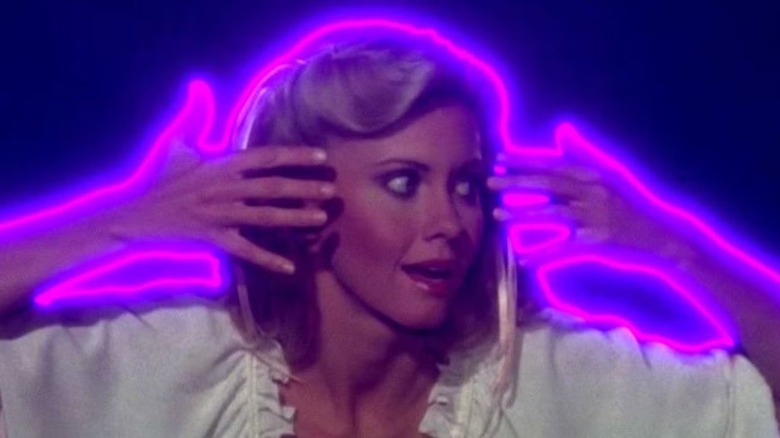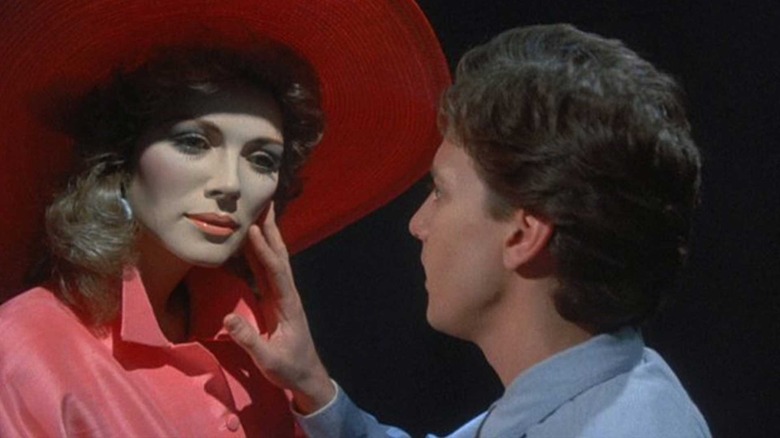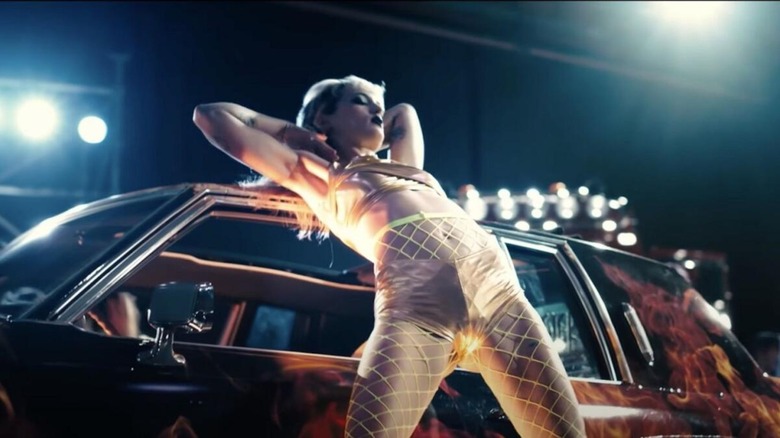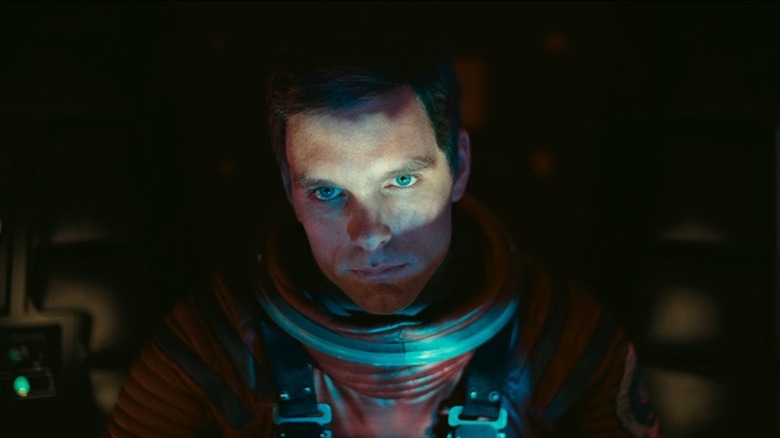12 Movies You Didn't Know Were Inspired By Greek Mythology
It's been said that there are no new stories under the sun. That's not an accurate statement; there's always someone cooking up something new. To be fair, looking at the average Hollywood slate can make you cynical. Yet amongst the reboots and remakes and rip-offs are inspired retellings of a much subtler kind. Everything old can be made new again, and one method is using ancient mythology to inspire modern drama.
It's not a leap. Greek myths helped set the tone for today's storytellers, with Joseph Campbell's breakdown of the monomyth — the Hero's Journey — providing those writers with their first One Weird Trick to create a successful story. But it's not just the rhythm of the story — the call to adventure, the return, etc. — that's still used today. It's the myths themselves, dressed up in ways both familiar and not. The former is a fun place to play, with sword-and-sandal style mythological epics like Christopher Nolan's upcoming "The Odyssey" proving there's a lot of life left on Mount Olympus. But there are sneakier ways of retelling the old stories, too, and that's what we're here to learn about: Twelve famous movies you may not have realized were based on tales older than you knew.
The Lighthouse
Robert Eggers' twisted tale of two weird wickies (Robert Pattinson and Willem Dafoe) locked up together for way too long is based on more than just a real-life tragedy. Savvy students twigged to familiar themes quickly, but they're subtle to most. The keys to unlocking the mythological riddle in "The Lighthouse" are many, but two of them are based on some terrific shots.
The first is Thomas Wake (Dafoe) gripping Thomas (Pattinson) as light streams forth from him, making him seem terrifying and godly. That shot, which references "Hypnosis," a painting by Sascha Schneider — and his terrific monologue — are clues that he's taking the role of a god, specifically Proteus, a shape-changing secret-keeper who was the son of the sea god, Poseidon. The second is Howard's bloody fate at the end, laid amongst the rocks while the seabirds eat away at his flesh. That turns him into Prometheus, the bringer of fire — a stealer of secrets — locked into an eternal prison.
While "The Lighthouse" is meant to be interpretable on multiple levels, it's also a clear reminder that Greek myths still have a lot to tell us about ourselves today, especially when it comes to the lure of stealing what is taboo to us. Prometheus' fate is human and relatable, whether it's the secret of a lighthouse, or getting caught sneaking a cookie when we're a kid.
The Killing of a Sacred Deer
Before "The Iliad" kicks into gear, King Agamemnon's family is already marked by generations of misfortune. Refusing to learn from the past, Agamemnon spends his time pissing off Odysseus while doing his recruiting for the upcoming Trojan War, and pissing off Artemis by killing one of her sacred deer so he could say he was a cooler hunter than the hunter-goddess. This does not end well for him, and it doesn't end well for Dr. Steven Murphy (Colin Farrell) as the family patriarch at the head of the weird-as-usual Yorgos Lanthimos film "The Killing of a Sacred Deer."
While the details are heavily changed, the story beats feel dead on to the myth. Murphy lost a patient (due to his own arrogance and mistakes, or as they used to call it back in the Greek era, hubris), and the patient's son, Martin (Barry Keoghan), shows up to inflict surrealist Grecian torment on Murphy's family. As it turns out, Murphy, like Aggie, kind of has it coming, weird incest overtones and all, but the almost mystic hold Martin (sound it out: Martin/Artemis) has on the family as they spiral towards a tragic Greek ending that definitely won't be pretty is unnerving as hell.
Incendies
Denis Villeneuve is not immune to the lure of the legends, and his early-career adaptation of the acclaimed Lebanese play, "Incendies," uplifts and even amplifies the themes of "Oedipus Rex" that pulse through the story. If you're vaguely wondering if you're remembering Oedipus right, you probably are: it's the one where the guy sleeps with his mom. In classic Greek fashion, the results are tragic.
"Incendies" blends in other crucial baggage as well, such as the centuries-long conflict between Islam and Christianity against the backdrop of a fifteen-year civil war that was ignited by that conflict. For Villeneuve and playwright Wajdi Mouawad, the story becomes ageless when matched with Oedipus' horror and sense of responsibility. As a pair of twins uncover facets of their mother's history during the war, inevitable horrors are revealed. Poor Nawal Marwan (Lubna Azabal) is as unwitting as the movie's version of Queen Jocasta, but it's the war's own atrocities and divisions that create its necessary Oedipus.
Moulin Rouge!
Is it that much of a surprise that the splashy Baz Luhrmann used mythology to reinvent the modern musical with "Moulin Rouge!" with its bright diamond and wine spectacle? Released five years later after his gonzo-yet-bang-on take on Shakespeare, "Romeo + Juliet," Ewan "Hello there!" McGregor and Nicole Kidman are Orpheus and Eurydice for the modern theatre kid set. It's not a mistake that McGregor's Christian is a poet and musician who helps the Rouge tap into a magical world of sound unbounded by time; Orpheus was no slouch with a flute. And it's not a mistake either that Kidman's Satine spends the story secretly haunted by Death.
The Duke of Monroth (Richard Roxburgh) is, fortunately, not Hades. He's just a scummy nobleman who thinks Satine should belong to him, illness or no. Hades is many things, including Zeus' crankiest brother, but he's not a villain. He may be a reference to one version of the story, where a shepherd chases Eurydice into the fangs of a snake. In any case, "Moulin Rouge" contains simply too much of everything to contain it to just a retelling of one Greek myth ("A Midsummer Night's Dream" and "Camille" are also featured inspirations), but that myth certainly matters in the end.
Weird Science
In the era of "Porky's" and "Revenge of the Nerds," John Hughes' screwball teen sex comedy "Weird Science" is almost quaint and even a little too smart for its own good. In the long run, that's helped give this cult sci-fi classic its sexy legs. Kelly LeBrock's dream AI girl Lisa is a big-hearted, funny gal here to help these kids grow up, making her much more than a bimbo to ogle. It also helps that there's a little Greek blood in her, too — she's Pygmalion's statue incarnate.
Pygmalion was one of the original hyperfocus ADHD guys in literature. Ovid's "Metamorphosis" talks him up as a genius sculptor who falls in love with his finest work, giving it furniture and offerings, and eventually pleading directly to the goddess of love herself, Aphrodite, to grant his creation a true existence. His prayer is granted, and the statue comes to warm, loving life. Come 1985, horny teenagers Gary (Anthony Michael Hall) and Wyatt (Ilan Mitchell-Smith) are a little young to keep up with their magical mystery woman, but hey, it all has a happy ending — and one hell of a reason to keep going to gym class.
O Brother, Where Art Thou?
With a title like "O Brother, Where Art Thou?", one would immediately suspect Joel and Ethan Coen got it from somewhere. It's not a quote from anything, however (and certainly not "The Wizard of Oz," an original point of inspiration), but it's a reference to the movie "Sullivan's Travels," in which a filmmaker wants to adapt a novel called "O Brother, Where Art Thou." The 1941 film also served as an inspiration for the Coen brothers' production.
As to real inspirations, "The Odyssey" is a bit of a left-field guess. Until you watch it, and then it's amazingly, hilariously obvious. With George Clooney as Ulysses (the Roman variant of Odysseus) and John Goodman as a racist, one-eyed thief who isn't named Polyphemus but might as well be, this folk musical mashup is one of the best CliffsNotes on the ancient epic to date. Good luck, Sir Christopher Nolan!
Short of the naming gag, "O Brother, Where Art Thou" comes hard out of the gate with blind prophets, temptations from washer women sirens, and a loser trying to get into Penelope's (Holly Hunter) dress while her husband's away. Disguises, folk music, and trials all keep Ulysses from his happy ending, but the film sure as hell is a ride through the highlights of mythology.
Oldboy
By now either you've seen Park Chan-Wook's grimy crime classic "Oldboy" and know the twists, or you know the twist and know you don't want to watch it go down. Yup, the classic ick-fest legend of Oedipus is back on the menu, buried as a nightmarish gag as Oh Dae-Su (Choi Min-sik) seeks revenge for his years of imprisonment. The tonal similarity of his name to Oedipus is intentional, as his roaring rampage of revenge gets turned back onto him when it's revealed that his torment was all a set-up because Dae-Su's big mouth long ago drove his tormentor's sister towards suicide.
If that sounds a little confusing, it is. The Oedipal punchline is also reversed from the myth, and somehow, it's even more disgusting to contemplate, turning it into a father-daughter situation. Thus, the cycle of revenge shows off the only thing it begets: Regret, by the bucketful. "Oldboy" is one of the least fun movies ever made, based slightly on one of the least fun myths ever put to parchment. But it's also art, in a horrific, self-assessing kind of way. How much are you willing to sacrifice for what you think you're owed? Maybe not that much.
The Spirit
Not only is "The Spirit" an homage to Frank Miller's overconfident ego when directing alone — Robert Rodriguez's career carried both "Sin City" films — and not only is it an insult to Will Eisner, a comic creator so thoroughly regarded that the premier comic award is named for him, but it's also bad mythology. Oh, Zeus, it is.
There's not much to help us specifically plot the course of whatever Miller had in mind when he wrote the script. The jovial noir crime-fighting hero becomes the usual Frank Miller special buried behind the effects that made "Sin City" something worthy, but splashed against it all is some heist nonsense involving the Golden Fleece and the blood of Hercules. Both items are used as if they were relics in an "Indiana Jones" movie, but with less sense and even less cheeky knowingness. One can't guess what Hercules did to deserve winding up here, but Lord knows one of his trials is gonna be making it through this whole movie.
Xanadu
So aggressively '80s and so impressively bad yet watchable that it helped invent the Golden Raspberry Awards to our modern chagrin, "Xanadu" is nominally a movie about a guy who needs the Nine Muses to help him suck less at painting the kind of album covers that wind up on the side of a van. What it really is, is about an hour and a half of Olivia Newton-John rollerskating around New York and doing her best to inspire the existence of one of the city's hundreds of nightclubs, only this one's name is inspired by Samuel Taylor Coleridge's famous unfinished poem, "Kubla Khan." Because there's no way anyone involved in this flick knows anything about China's Yuan Dynasty.
Newton-John is Terpsichore, the Muse of dancing, which at least makes sense. Her parents, Zeus and Memnosyne (Zeus got around more than Nick Cannon, folks), are represented by mystical voices, but her sisters get to show for the finale's big dance number. Don't blink if you've made it this far: one muse is also Conan the Barbarian's muse, as Valeria actress Sandahl Bergman does the best she can without the sword she's owed.
Mannequin
"Weird Science" was not the only campy '80s movie to draw from Pygmalion and his beloved statue. "Mannequin" was released only two years later, with a meet-cute story sludged together from an out of nowhere ancient Egyptian angle — Kim Cattrall was adorable in the '80s, but not Egyptian princess adorable, but fine, we'll go with it — and that one episode of "The Twilight Zone" with a mannequin on vacation looking for a gold thimble. But, yes, it's also Pygmalion all over again, as Andrew McCarthy's Jonathan Switcher isn't just a flop artist stringing from job to job, but someone obsessed with the one really good mannequin he made, like, fifteen gigs ago.
In retrospect, there's something deeply funny about taking a marble masterpiece and turning it into a rigid plastic and foam piece of decor that may, at best, be painted up like one of Patrick Nagel's striking yet viciously retro art prints. The plastic consumerism of the '80s replaces pieces that have lived for centuries. But, to be fair to this cheeseball of a movie, sometimes the love lasts, too.
Titane
The gag is in the title for Julia Ducournau, who is referencing both the titanium in her lead character's skull and the primordial Titans of old; the barely-human progeny of ancient gods, concepts given form, pure elements of life that create origin points for the sea, the sun, and all the stuff we credit monotheistic godforms for now. The creation and the fall of the Titans is arguably best told in Ovid's "Metamorphosis," and if you're a film student doing the Leonardo DiCaprio pointing meme right now, yeah, it's ... "Titane" is definitely about metamorphosis, all right.
In myth, it's the Titans' role to quickly fall away and give rise to the Olympian Gods we know better. "Titane" gives this era transition time to really stick in the brain, as Alexia (Agatha Rousselle) speedruns much of a combined male/female experience while also being drawn solely to the love of hot cars and raw mechanophilia sex with said vehicles. As she changes form, female to male to female, she, too, brings a new form of life into the world.
In perhaps the last hidden gag, the "Metamorphosis" also talks about a prophet of Apollo who, on offending Hera, lived the life of a woman for most of a decade and even had a child before returning to their male form. Their name? Tiresias. Maybe that would've been too on the nose for a story where the car sex is just one element of many to unpack. The ending of "Titane," however, proves that it's love that matters. Ovid wrote about that, too.
2001: A Space Odyssey
Seeing "2001: A Space Odyssey" in this list should be a path to going "What?" And then going "Ohhh, damn, that's actually kind of obvious, huh?" It is and it isn't; Stanley Kubrick's voyage through the stars leans into an almost eldritch contemplation of the vast and incomprehensible depths of space, not a return from war. But then, are our first long journeys into that unknown that far removed from being small creatures in boats made of wood, lost on roiling seas?
David Bowman (Keir Dullea) isn't just Odysseus, though his return home is met with a similar confusion as Odysseus in disguise. The entire film is a creation myth retold, the gods boxed into a silent monolith as they shape and guide generations of life across the stars. Bowman is changed in the shadows of Jupiter (Jupiter being the Roman name of Zeus, king of all the gods) by the end, and becomes all: An ascended god himself, a Prometheus, and a prophet of warning. He has ascended, by virtue of whatever lies beyond mortality. It's the ancient myths drawn into simple shapes, just so Kubrick and Arthur C. Clarke could tell us about thousands of years of life in fewer than three hours. It still helps to have an edible first, though.

